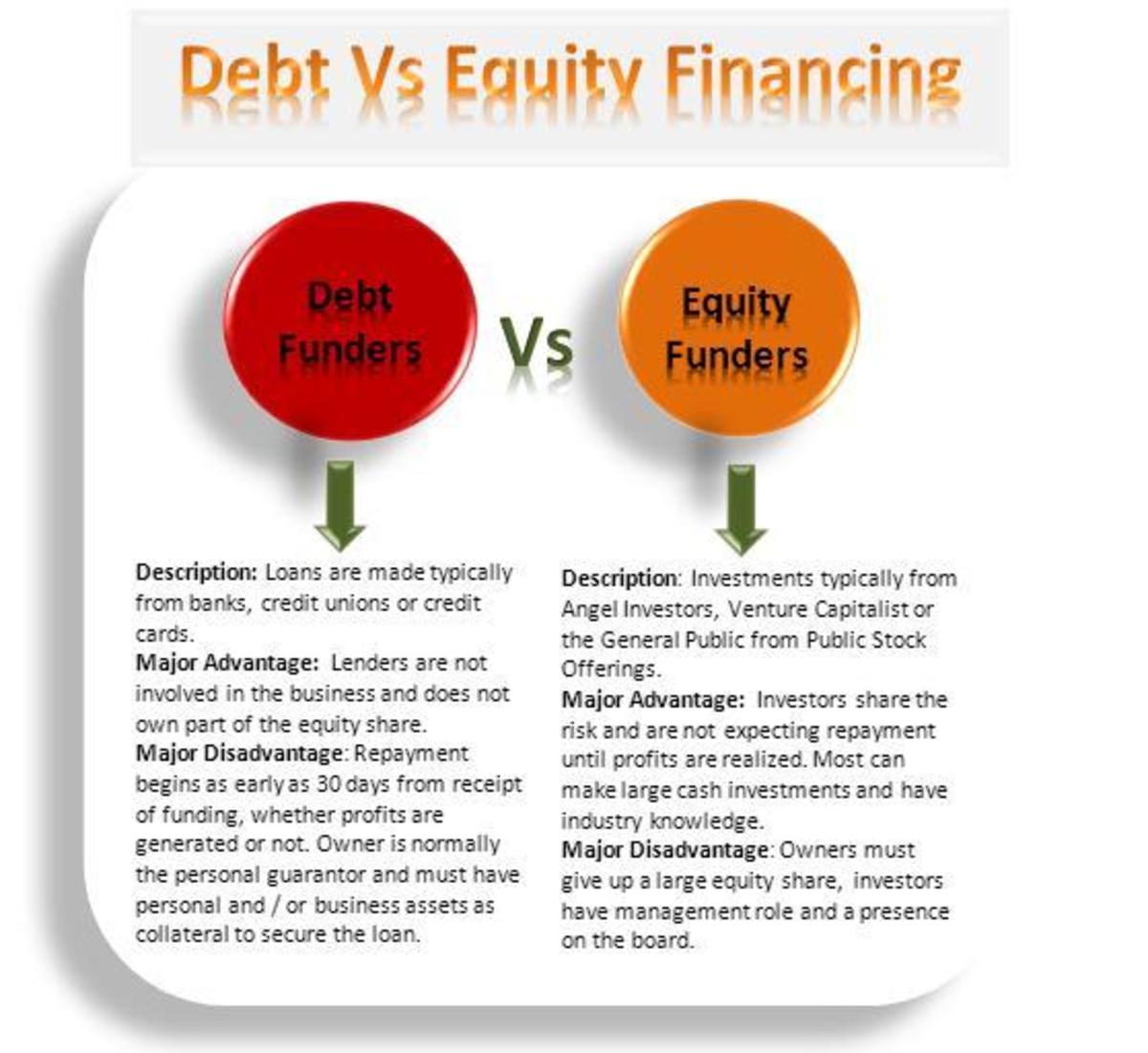Business Start-Up Capitalization


One key to a successful business start-up and expansion is your ability to obtain and secure appropriate financing. Raising capital is the most basic of all business activities. However, as many new entrepreneurs quickly discover, raising capital may not be easy; in fact, it can be a complex and frustrating process. However, if you are informed and have planned effectively, raising money for your business will not be a painful experience. This information summary focuses on ways a small business can raise money and explains how to prepare a loan proposal.
Finding the Money You Need
There are several sources to consider when looking for financing. It is important to explore all of your options before making a decision.
1. Salary
"Don't give up your day job." That is the advice commonly given to aspiring actors and musicians, but it is equally applicable to many entrepreneurs who are testing the waters. If you start small enough, you may be able to stay afloat for many months by continuing your full-time job or cutting back to part-time. This steady source of income can reduce your need for turning to others for start-up funds and can help keep you solvent if the business doesn't succeed.
2. Personal Savings
Putting your own money into your business is the simplest way to start or expand your business. You avoid entanglements with others, keep your business affairs private, and avoid possible legal complications.
If your business takes off, you will own business assets, such as inventory, equipment, and furniture, free of debt, making it easier to borrow money later or bring equity investors into the business.
Your money may come from savings that you have carefully accumulated over the years. Alternatively, it may come from a lump sum of money that is available all at once. For example, you may have received an inheritance from a relative or an attractive severance package from a job you have just left. Or, perhaps you've sold your house and will be living in a less expensive one or in rented quarters. Investing this money in your own business may yield a bigger return than you could ever expect to receive by investing it in someone else's business.
3. Credit Cards
You can use your credit cards to help finance your business. Plastic can quickly get you a computer and fax machine, and probably other business equipment and furniture as well. In addition, for expenses such as rent, phone bills, or money to pay employees, you can usually get a cash advance.
Credit cards are a convenient way to arrange for short-term financing because they are so easy to use. Over the long haul, however, they are less attractive, mainly because the interest charges are relatively high, often as much as 20 percent or more per year. If you are going to succeed in business, you will not want to borrow very much for very long at those rates.
4. Buying on Credit
The companies from which you are buying goods or services may offer favourable credit terms to capture your business. Often this will mean you do not have to pay your bill for 30, 60, or more days. Alternatively, you may be able to spread payments for a purchase over a period of several months with no finance charges as long as you pay each instalment on time. Moreover, the interest rate that is charged may be substantially lower than that charged by a credit card company.
Do not be discouraged by the fact that the best credit terms usually go to already established businesses and that new businesses typically have to pay up-front. Credit decisions are somewhat subjective, leaving you room to convince the seller that your new business deserves special consideration. Especially, if you will need starting inventory, as in the case of a retail store, call suppliers and ask for help. Show them a copy of your credit history and business plan. If they look good and you are persuasive, you may be able to get a fair amount of your inventory on favourable terms.
5. Leasing
If you need equipment, anything from computers and copiers to forklifts and trucks, consider leasing it. True, leasing doesn't put money directly in your hands, but almost as good from a cash flow point of view, it does reduce the amount of cash you would have to come up with if you were to instead buy the same equipment. Moreover, many leases offer you the option to acquire the equipment for a nominal amount when the lease period is over. Over the long term, leasing usually costs a bit more than buying, but if the cash flow from your business will be tight for a few years, leasing can be an effective way to get the equipment you need now.



6. Friends, Relatives, and Business Associates
Those close to you can often lend you money or invest in your business. This helps you avoid the hassle of pleading your case to outsiders and enduring extra paperwork and bureaucratic delays. Help from friends, relatives, and business associates can be especially valuable if you have been through bankruptcy or had other credit problems that would make borrowing from a commercial lender difficult or impossible.
Some advantages of borrowing money from people you know well are that; you may be charged a lower interest rate, may be able to delay paying back the money until you are more established, and may be given more flexibility if you get into a jam. Nevertheless, once the loan terms are agreed to, there is one thing that borrowing from friends, relatives, or business associates does not do: It does not legally diminish your obligation to meet those terms.
In addition, borrowing money from relatives and friends can have a big downside. There is always the possibility that if your business does poorly and those close to you end up losing money, you will damage a good personal relationship. So in dealing with friends, relatives, and business associates, be extra careful not only to establish clearly the terms of the deal and put it in writing but also to make an extra effort to explain the risks. In short, it is your job to make sure your helpful friend or relative will not suffer a true hardship if you are unable to meet your financial commitments.
7. Supporters
Many types of businesses have loyal and devoted followers, people who care as much about the business as the owners do. A health-food restaurant, a women's bookstore, an imported cars repair shop, or an art studio, for example, may attract people who are enthusiastic about lending money to or investing in the business because it fits in with their lifestyle or beliefs.
Their decision to participate is driven to some extent by their feelings and is not strictly a business proposition. These people can also be a source of great ideas, ideas that can be as valuable as money, and they will be happy to share these with you at no charge.
The rules for borrowing from friends and relatives apply here as well. Put repayment terms in writing, and don't accept money from people who can't afford to risk it.

8. Banks
Banks are in the money business, so it is natural to look to them for start-up funds. Nevertheless, until your business has established a record of profitability, banks will be reluctant to lend anything substantial, even if you have good security. Bankers like to speak of the five C's of credit analysis, factors they look at when they evaluate a loan request. When applying to a bank for a loan, be prepared to address the following points:
Character: Bankers lend money to borrowers who appear honest and who have a good credit history. Before you apply for a loan, it makes sense to obtain a copy of your credit report and clean up any problems.
Capacity: This is a prediction of the borrower's ability to repay the loan. For a new business, bankers look at the business plan. For an existing business, bankers consider financial statements and industry trends.
Collateral: Bankers generally want a borrower to pledge an asset that can be sold to pay off the loan if the borrower lacks funds.
Capital: Bankers scrutinize a borrower's net worth, the amount by which assets exceed debts.
Conditions: Whether bankers give a loan can be influenced by the current economic climate as well as by the amount.
9. Venture Capitalists
There are companies and individuals looking to invest in extraordinary companies that can produce large profits. See if your city has a venture capital club which helps introduce new businesses to venture capitalists. If so, get in contact and find out how you can meet potential investors. Often you will be afforded a chance to make a short presentation that can make an impression on someone with deep pockets. Your local or state chamber of commerce should be able to direct you to the closest club, or you can check with the instructor of a business school that offers courses in entrepreneurship.
10. The Seller of an Existing Business
If you are buying an existing business, you may be able to negotiate favourable payment terms, which can reduce the amount of cash you have to come up with. You have a number of variables to work with. Try to keep the down payment low, and see if the seller will agree to below market interest rates or will even charge no interest for the first year or two.
Try, too, to extend the payments over as many years as possible. As with a bank loan, you can always pay the debt off early if your business prospers.
Borrowing Money
It is often said that small business people have difficult time borrowing money. This is not necessarily true.
Banks make money by lending money. However, the inexperience of many small business owners in financial matters often prompts banks to deny loan requests. Requesting a loan when you are not properly prepared sends a signal to your lender. That message is High Risk!
To be successful in obtaining a loan, you must be prepared and organized. You must know exactly how much money you need, why you need it, and how you will pay it back. You must be able to convince your lender that you are a good credit risk.
Types of Business Loans
Terms of loans may vary from lender to lender, but there are two basic types of loans: short-term and long-term.
Generally, a short-term loan has a maturity of up to one year. These include working capital loans, accounts receivable loans, and lines of credit.
Long-term loans have maturities greater than one year but usually less than seven years. Real estate and equipment loans may have maturities of up to 25 years. Long-term loans are used for major business expenses such as purchasing real estate and facilities, construction, durable equipment, furniture and fixtures, vehicles, etc.








